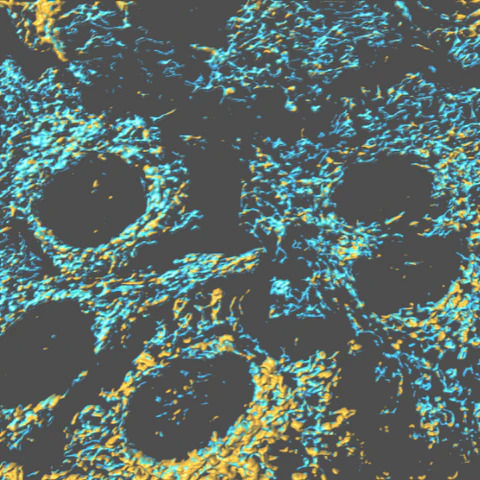Active Ingredient in Cannabis Protects Aging Brain Cells

Decades of research on medical cannabis have focused on the compounds THC and CBD in clinical applications. But less is known about the therapeutic properties of cannabinol (CBN). Now, a new study by Salk scientists shows how CBN can protect nerve cells from oxidative damage, a major pathway to cell death. The findings, published online on January 6, 2022, in the journal Free Radical Biology and Medicine, suggest CBN has the potential for treating age-related neurodegenerative diseases, such as Alzheimer’s.
“We’ve found that cannabinol protects neurons from oxidative stress and cell death, two of the major contributors to Alzheimer’s,” says senior author Pamela Maher, a research professor and head of Salk’s Cellular Neurobiology Laboratory. “This discovery could one day lead to the development of new therapeutics for treating this disease and other neurodegenerative disorders, like Parkinson’s disease.”

Healthy mitochondria (green); mitochondria showing the effects of oxidative stress (blue); and oxidative stress with CBN (red). Insets show higher magnification of the structure of the mitochondria.
Maher’s team looked at the process of oxytosis, also called ferroptosis, which is thought to occur in the aging brain. Growing evidence suggests that oxytosis may be a cause of Alzheimer’s disease. Oxytosis can be triggered by the gradual loss of an antioxidant called glutathione, causing neural cell damage and death via lipid oxidation. In the study, the scientists treated nerve cells with CBN and then introduced an agent to stimulate oxidative damage.
They further found that the CBN worked by protecting mitochondria, the cell’s powerhouses, within the neurons. In damaged cells, oxidation caused the mitochondria to curl up like donuts—a change that’s also been seen in aging cells taken from the brains of people with Alzheimer’s disease. Treating cells with CBN prevented the mitochondria from curling up and kept them functioning well.
“CBN is not a controlled substance like THC, the psychotropic compound in cannabis, and evidence has shown that CBN is safe in animals and humans.”
Want to try CBN for yourself? Shop MD-Neurosolution’s sleep aid “CB-Neuro™”.


